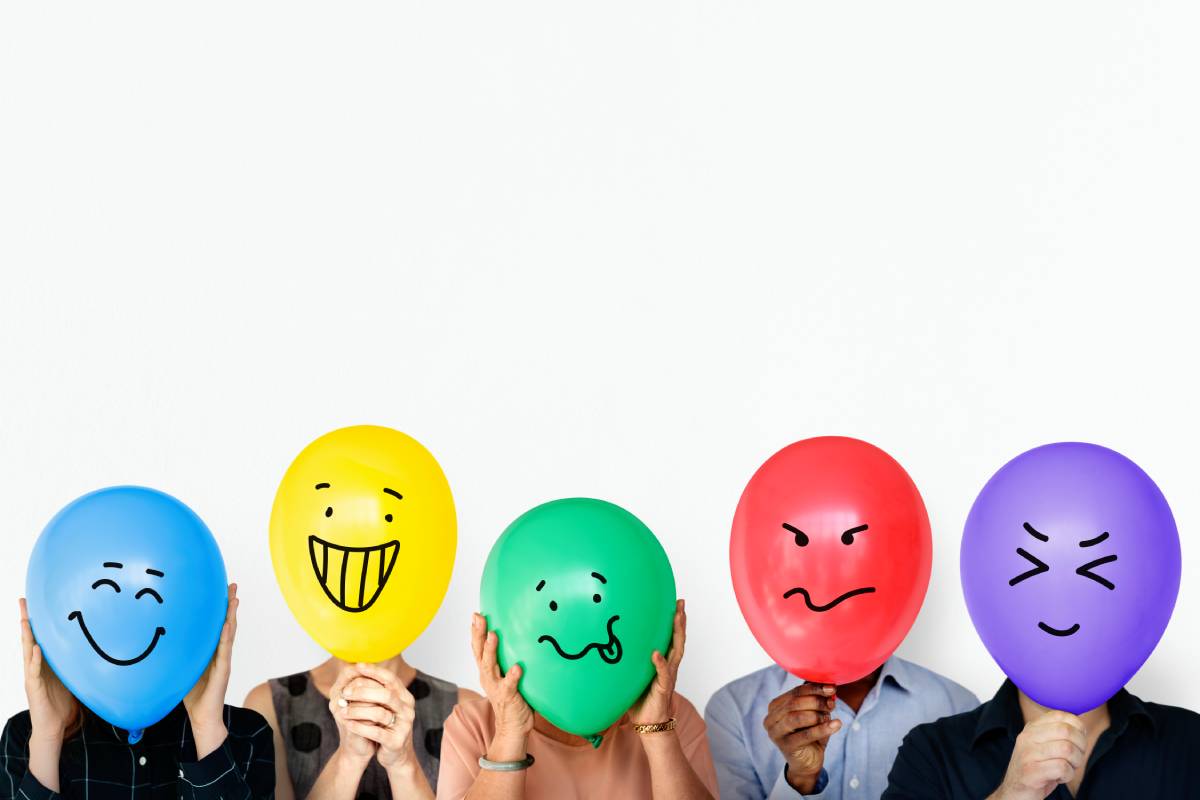Emotions shape the way we think, act, and connect with others. Whether it’s staying calm during an argument or staying focused under stress, how we handle our feelings matters.
This ability is one of the most important life skills we can develop. It helps us respond wisely instead of reacting impulsively, and it plays a key role in mental health, relationships, and overall well-being.
In this article, we’ll explore the three main types of this skill, how it grows and changes throughout life, and what outcomes it brings when we practice it well. Understanding it isn’t just useful it’s essential for thriving in everyday life.
What is Emotional Regulation?
Emotional regulation means how people control which emotions they have, when they have them, and how they show or feel those emotions.
It includes both conscious and unconscious ways to manage feelings to fit the situation and personal goals.
Good emotional regulation is not just about hiding feelings, but adjusting them so they help us, not harm us.
The Three Types of Emotion Regulation
Experts divide emotional regulation into three main types based on when and how we control emotions.
These types show the different ways we manage our feelings before emotions happen, while emotions are happening, or with support from others. Understanding these types helps us handle emotions better in everyday life.
1. Antecedent-Focused Regulation
This happens before emotions fully appear. It involves changing the situation or how we think about it to influence feelings.
- Situation Selection: Choosing to avoid or face certain things to control emotions. Like skipping a stressful event to avoid anxiety.
- Situation Modification: Changing a situation to feel better, like asking for help during a tough talk.
- Attentional Deployment: Focusing attention away from emotional triggers, such as doing a task to distract from negative feelings.
- Cognitive Reappraisal: Changing how we think about something to feel differently. For example, seeing a job rejection as a new chance rather than failure.
Antecedent-focused emotional regulation is very helpful because it stops bad feelings before they get too strong.
2. Response-Focused Regulation
This happens after emotions have started. It controls how we express or feel emotions once they are happening.
- Expressive Suppression means hiding feelings, like not showing anger. It can help in some situations but doing it too much may cause stress or harm mental health.
- Physiological Regulation uses breathing or relaxation techniques to calm the body. This helps reduce physical stress and makes it easier to handle emotions right away.
3. Intrinsic vs. Extrinsic Regulation
This type looks at who controls the emotion:
- Intrinsic Regulation means a person manages their own feelings. They use simple ways like calming themselves or thinking differently to handle emotions on their own.
- Extrinsic Regulation is when others help with emotions. For example, a parent comforting a child or a friend supporting you when you’re upset. This help is very important when we are young and still useful as we grow up.
Extrinsic emotional regulation is important especially for babies and young kids, but also important throughout life through social support.
Emotional Regulation Across the Lifespan
Emotional regulation changes as we grow older. Our brain develops, and we learn new ways to manage feelings.
Experiences and people around us help us get better at controlling emotions in different situations. This skill improves throughout life.
Early Childhood
Babies and toddlers rely mostly on others to help calm their emotions. Caregivers provide this extrinsic emotional regulation by comforting them.
As children grow, they begin learning simple ways to regulate emotions on their own, like distracting themselves or asking for help.
Childhood and Adolescence
As thinking skills improve, children use smarter emotional regulation strategies like rethinking a situation to change their feelings.
Teenagers face many emotional challenges due to brain changes and social pressures, making managing emotions more difficult but also more important.
Adulthood
Adults usually have many emotional regulation tools. They can plan ahead and choose the best ways to handle their emotions. They know how to stay calm and manage feelings well in difficult social or work situations.
Older Adulthood
Older adults often get better at emotional regulation. They feel fewer negative emotions and focus more on positive moments. This happens because of life experience and changing what matters most to them.
Outcomes of Emotional Regulation
Good emotional regulation leads to many positive results:
Mental Health
It reduces feelings of anxiety and depression. When we control emotions well, we handle stress better and feel calmer.
This helps us bounce back faster from setbacks and face challenges with more confidence. Without this skill, mental health problems can get worse and affect many parts of our life.
Physical Health
Managing emotions well reduces chronic stress and protects the body’s health, including heart and immune systems.
Many top online programs now teach emotional regulation techniques to help improve both mental and physical health.
Social Relationships
Good emotional regulation helps us communicate more clearly and listen better to others. This reduces misunderstandings.
We become more empathetic because we don’t react too quickly with strong emotions. It helps us handle conflicts calmly and build trust.
People who manage their emotions well usually have better and happier relationships with those around them.
Cognitive Function and Decision-Making
When emotions are strong, it’s easy to lose clear thinking and make poor choices. Intense feelings can confuse us and cause quick decisions we might regret.
But if we manage our emotions well, we can think more clearly and make smarter decisions.
Controlling emotions helps us stay calm and handle situations better, especially when things get tough. This skill helps us solve problems and make good choices more easily.
Academic and Work Performance
People with good emotional regulation stay motivated and focused, which helps them perform better in school or work.
When facing stress, like exams or deadlines, they don’t get overly anxious.
They can also work well with colleagues. This skill helps solve problems and adapt, leading to success in both learning and work environments.
Conclusion
Emotional regulation is a key skill that affects every part of life. Understanding its three types antecedent focused, response-focused, and intrinsic/extrinsic helps us see how emotions can be managed well.
From babies to elders, this skill develops and changes, shaped by brain growth and social experiences. Mastering it brings better mental health, stronger relationships, and more life satisfaction.
Practicing techniques like mindfulness, reappraisal, and seeking support strengthens this ability. Knowing how to manage emotions well helps us live happier, healthier lives.








Leave a Comment